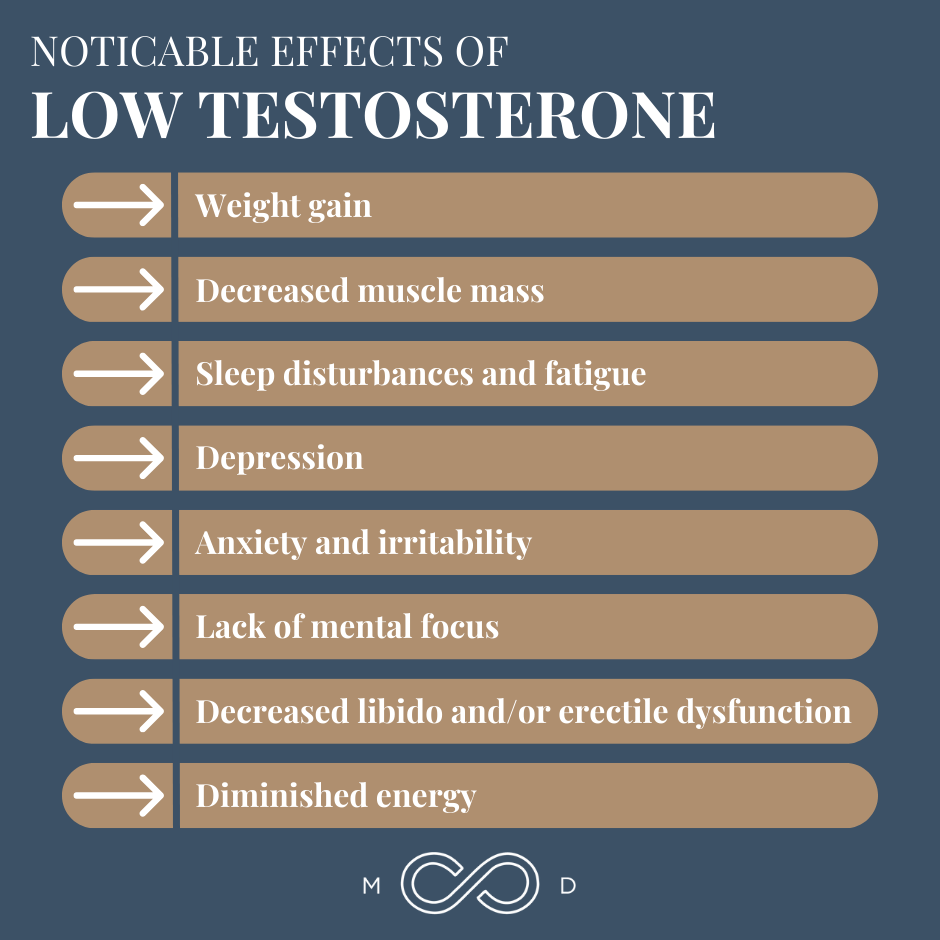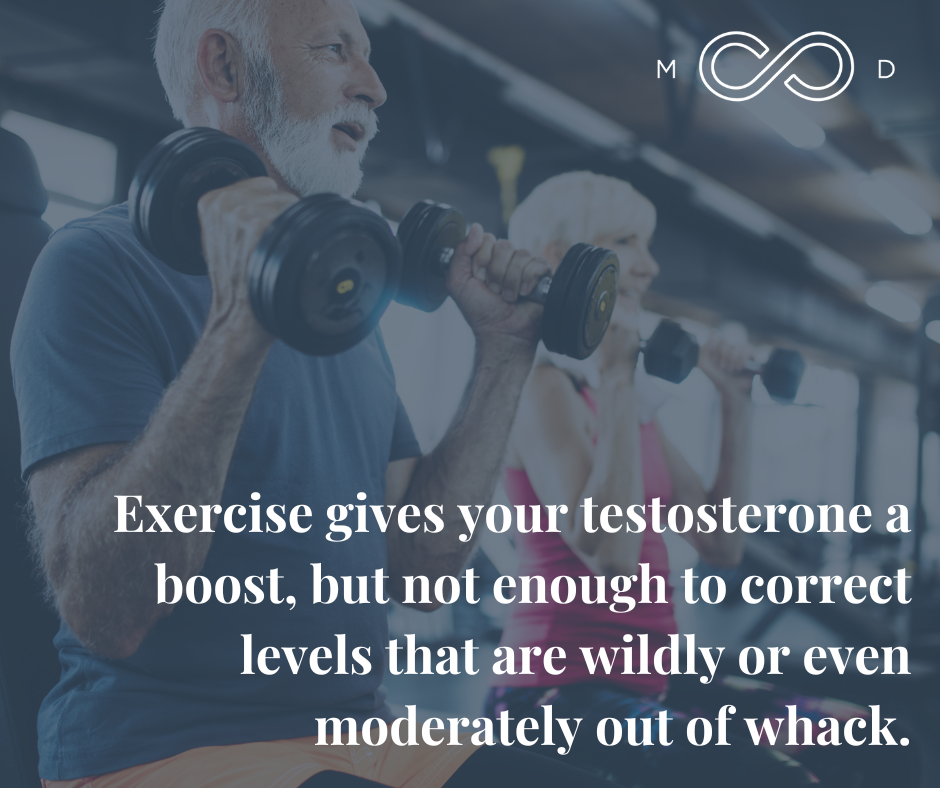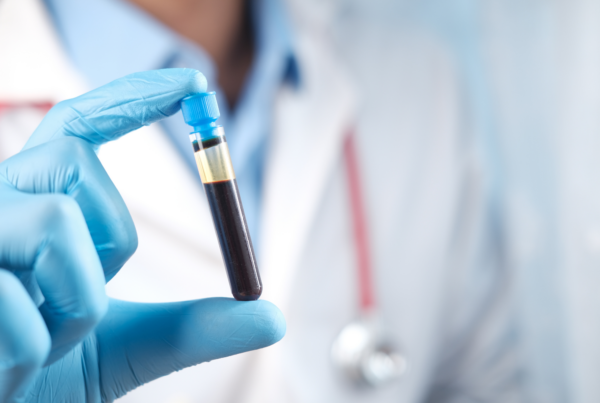If you’re a man looking to increase your energy levels, build muscle mass, and improve your overall health, you may be wondering how testosterone levels play a role in achieving these goals.
We’ve talked before about treating low testosterone in men both with bioidentical hormone replacement therapy (BHRT) and lifestyle changes. And one of the burning questions many people have about increasing testosterone through lifestyle is this: Does working out increase testosterone?
The short answer is yes.
The long answer is not as much as you might think.
In this article, I’ll explore the relationship between working out and testosterone levels, and explain how you can optimize your workouts to achieve your health goals.
Testosterone’s Role in the Body
Before we explore how working out affects testosterone levels, let’s first discuss what testosterone is and its role in the body.
Testosterone is a hormone produced primarily in the sex organs — testicles in men and, at a lower degree, ovaries in women — and in the adrenal glands. In men, it spurs the development of male sexual characteristics such as increased muscle mass, body hair growth, libido, and a deepened voice. Testosterone also plays a role in bone density, fat distribution, and red blood cell production.
Production peaks around age 22, and then men begin to experience a decrease in testosterone levels by about 1% every year after age 30. By age 45, most men start experiencing noticeable effects of low testosterone, such as:
- Weight gain
- Decreased muscle mass
- Sleep disturbances and fatigue
- Depression
- Anxiety and irritability
- Lack of mental focus
- Decreased libido and/or erectile dysfunction
- Diminished energy
If you’re experiencing these symptoms, you can find out whether you have low testosterone levels by working with a knowledgeable physician and getting two specific blood tests: total testosterone and free testosterone.
Total testosterone tells you the overall amount of testosterone in your body. If this is low, free testosterone gives you more information about the amount of bioavailable testosterone in your blood.
As mentioned above, one potential solution to low testosterone is bioidentical hormone replacement therapy, which has been shown to be a safe treatment option. This approach should also be supplemented with a healthy diet that includes more healthy fats — like those found in salmon, avocados, and nuts — in place of carbohydrates and sugars. It also benefits from the addition of exercise.
Does Working Out Increase Testosterone Levels?
Yes, working out can increase your testosterone levels — but maybe not as much as you’d think.
First, the impact of working out on testosterone levels will vary from person to person. Some may experience a more significant increase in testosterone, while others may not see much of a change. It depends on many factors.
That said, if your testosterone levels are normal or close to it, working out is generally a fantastic strategy to achieve and maintain optimal levels for as long as possible. But if your testosterone is low enough to cause symptoms, working out probably won’t be capable of raising your levels enough to make a difference in how you feel.
I like to relate the situation to getting a small pay raise. Say you make $50,000 or $100,000 a year, and you get a $1,000 raise. You’re certainly making more money, but that increase probably isn’t enough to change your feelings about your income.
Similarly, exercise gives your testosterone a boost, but not enough to correct levels that are wildly or even moderately out of whack. In those cases, exercise is more suited as a supplement to testosterone therapy.
How Different Types of Exercise Affect Testosterone Levels
So, whether you’re working out as a supplement to BHRT or as a strategy to maintain optimal testosterone, what kind of exercise is most beneficial?
Endurance exercise, such as long-distance running or cycling, has not been found to significantly impact testosterone levels. In fact, prolonged endurance exercise may even lead to a decrease in testosterone.
Conversely, studies show that resistance training, such as lifting weights, can positively impact testosterone levels. In a large-scale, 2020 review examining studies that compared different exercise effects on testosterone, researchers concluded:
“Resistance exercise appears to be a direct stimulant to testosterone production when sufficient muscle mass load is met, or when a moderate and higher exercise intensity is combined with larger muscle volume and shorter resting periods between the sets.”
Similarly, high-intensity interval training (HIIT) has also been shown to increase testosterone levels. These workouts involve short bursts of intense exercise followed by periods of rest or low-intensity exercise. The high-intensity portions of these workouts are what stimulate the body to produce more testosterone.
Whatever kind of exercise you choose, it’s important to make sure you’re working out properly — first, so you don’t injure yourself, and second, so you don’t cause a cortisol increase that negatively affects your testosterone production.
Does Working Out Increase Testosterone? Final Thoughts
The relationship between working out and testosterone levels is complex. While working out may increase testosterone production, the extent of the increase may not be significant. However, resistance training and HIIT workouts have been shown to be effective strategies to try.
If you’re experiencing symptoms of low testosterone, such as decreased energy, low libido, or muscle weakness, it’s important to consult with a knowledgeable physician who can help you investigate the underlying cause. If that cause is low testosterone, then they can advise you on whether testosterone therapy — in addition to diet and exercise adjustments — may be necessary.
Ultimately, incorporating regular exercise into your routine is a great idea regardless of your testosterone levels. But, as a bonus, it may also help you maintain the right balance of this crucial hormone.

Dr. Aaron Wenzel is a concierge physician specializing in the care of fast-moving entrepreneurs, executives, and public figures in the Nashville, TN area. Dr. Wenzel’s diverse life experience and extensive training in family medicine, emergency care, nutrition, and hormone replacement therapies give him the unique platform to provide unmatched care for his patients.









